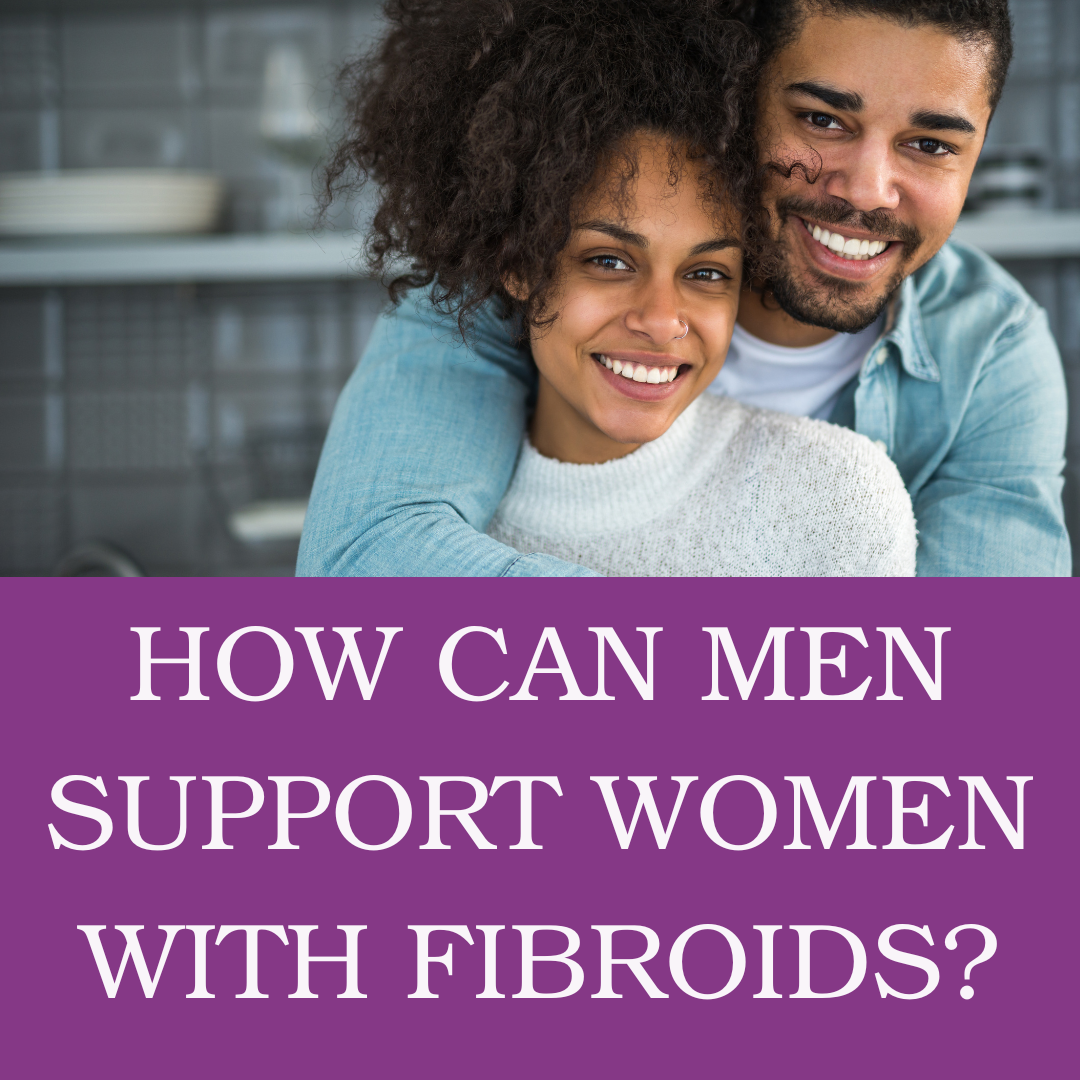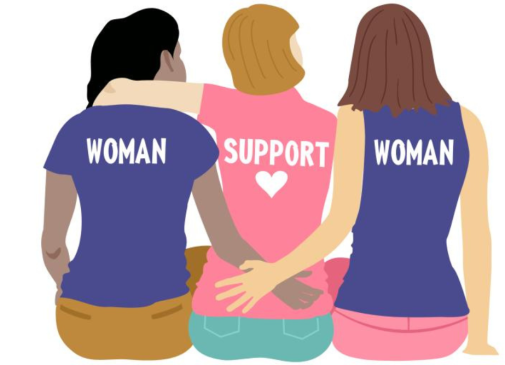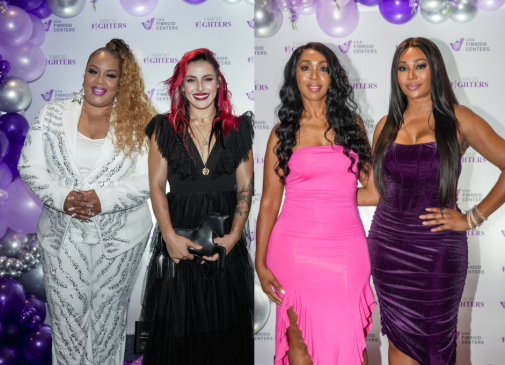
Many men often don’t speak about fibroids because they are known as a women’s condition. They feel it’s neither their right nor their place because they can’t understand how a woman feels – whether emotionally or physically. And it can be hard, but it doesn’t mean they shouldn’t try.
What Do Fibroids Feel Like?
Toya Johnson describes fibroids as feeling irritable and isolated from social activities because her symptoms were so exhausting.
“I was so tired of bleeding, so tired of being in pain, so tired of fatigue. I’d developed anemia because of my fibroids, and I was always eating ice.”
Kimberly Wilson had difficulties with her daily routine, feeling the pressures of society and continuing with her life like everything was fine.
“I felt it was difficult to get out of bed, but as black women, we’re taught you have to keep your chin up.”
Kym Lee-King’s husband was terrified to find his wife writhing in pain on the garage floor and begged her to get treatment. The two considered it the last straw.
“Kym, enough is enough. This is it. I’m not going to lose you.”
Congresswoman Stephanie Tubbs Jones fought for education as an empowerment tool, meaning that everyone would have the opportunity to learn about fibroids and how it affected women, not just the women affected by fibroids. Why?
“Women deserve better.”
Eugenia Buie discusses her emotional reactions to the procedures she needed to get to relieve her symptoms.
“In the interim, I experienced my very first blood transfusion, anxiety attacks, and the UFE procedure. All of that was enough to cause someone to be discouraged, but it had the opposite effect.”
Fear, worry, anger, and depression are common emotional reactions for women with fibroids. They may feel helpless in the face of their fibroids and emotions, believing they have little control over them. Many women have low self-esteem and fear of appearing less attractive, making it difficult to build personal relationships. Is there a prevailing factor in all of this? Women need community and support in times of need.
Men Indirectly Deal with Fibroids
In a recent “Guys, Let’s Chat” with Eugenia Buie, a special episode of “Girls, Let’s Chat”, Buie brings Sidney Karr, VP of Sickle Cell Thalassemia Patients Network (SCTPN), and Pastor Gregory Griffin, Roberson Memorial Church, to discuss how men can support women that suffer from fibroids.
The question asked so often is: How can men help you deal with your fibroids? The short answer is they can support you. While the woman is doing most of the fighting, support is always needed, regardless of your strength. In the same way, other women are in women’s lives, like friends and family, men are in women’s lives just the same – and they all make up a part of the community surrounding that woman. Brothers, husbands, and sons – they grow up and live in the same household as women.
“Hear me out when I say to have men’s support in an area they don’t directly deal with, right? But can I tell you something? Men indirectly deal with fibroids just as much as we do. How is that?” Eugenia asks the viewers and her guests; her answer is crystal clear.
“Because for every woman in their household that deals with fibroids, the men in the household must deal with outcomes of your emotional, physical, and mental trauma. They deal with you not being in the mood and being unable to do what you normally do to support your household. Their daughter may have fibroids, and their dad wants to help, right? But he can’t help because he doesn’t know how to help,” Buie explains, touching on household dynamics and how one person’s mood can change everything. “
Emotions are complicated, and when someone goes through something as tough as a condition like fibroids, it will take a toll on the woman. Studies have shown that women with fibroids are more depressed, anxious, and stressed than others. This can stem from the pain of fibroid symptoms, resulting in fear of bleeding through clothes, not wanting to move, body insecurity, and never wanting to go out to social gatherings.
| Fibroid symptoms can include heavy or prolonged periods lasting 10+ days, difficulty emptying your bladder, frequent urination, constipation, lower back or leg pain, bleeding between cycles, protruding belly/abdomen, and/or pelvic pain or pressure. |
These symptom side effects, in turn, affect the people they live with.
How can it affect interpersonal relationships? Consider these situations:
- A significant other who wants to take their girl out for a date night
- A kid who wants his mother to attend parent-teacher conferences
- A brother who wants his sister to attend to his wedding
- A significant other who wants to introduce the woman in his life to his family
All of these life events can fall through for the woman due to the symptoms of fibroids. This is because fibroids can cause a series of emotions, and the one suffering from it would be everyone: the woman suffering from fibroids – and the person in her life, who she could potentially act out on. It can cause the people around them to be gravely disappointed when she can’t be there for these critical life events, causing rifts in relationships and frustrations for everyone involved.
It’s All About Communication – For Everyone
Communicate. It’s the piece of advice everyone hears about everything. Maybe so, but there’s no denying that communication works. There’s a reason it’s continuously brought up time and time again. Women need to talk to other women about fibroids, for they’re the only ones that can have them, and keep other women informed about what could happen to their bodies – and the signs of fibroids. Women have to talk to men about fibroids as well, to let them know how it feels, and why they’re acting the way they are; on the other hand, men need to listen mindfully and ask whether or not the woman in their lives want advice, or someone to listen to them.
Internalizing pain and suffering have been a concept women have dealt with for centuries, so it’s nothing new. It’s time for a change, for the better of women, for the better of their relationships, and their quality of life.
“Because, for one, black women have been taught that we don’t share those types of things [physical pain and suffering],” Eugenia says, asking, “Women, can I tell you something? It’s time for us to talk about things that we were told is not okay to talk about out loud. Why? Because you need the help you need so you don’t have to suffer.”
The people around you can’t simply tell you something is wrong because you’re acting out as much as you may want them to.
“Men don’t understand what women go through because women don’t express it. So share that. Communicate how you feel because it will be helpful for everyone to understand kind of where you are in that space mentally, and that’s not something everyone can control,” Eugenia advises.
You Don’t Have to Be Alone or Lonely
Support and communication are critical on both sides of the relationship. As Pastor Gregory Griffin mentions, a woman can be going back and forth and back and forth from doctor’s offices and hospitals. It might be annoying for the person taking the woman to these appointments, but it’s exhausting for the women going to these appointments.
Eugenia mentions she would “have constant anxiety attacks, enclose herself in a room, and not go anywhere to cope.” It’s very similar to depressive episodes, which can take a toll on the person having them and the people surrounding this person. These emotionally and physically taxing side effects from fibroid symptoms affect everyone.
Pastor Gregory Griffin believes getting help is the best thing a man can do for a woman they care about, whether pushing her to see a professional, or staying by her side when she needs him the most. Communication is indeed a two-way street; when someone asks for help, supporting them with and through this
“Help is the start. Help opens up more doors for knowledge, information, and peace. The more we’re informed, the more peace we are at where we’re at. Because when you know what you are about what’s going on with you, you also know what steps you need to take to tackle this.” – Pastor Gregory Griffin
Create Your Own Communities
And if you don’t have people in your life you can trust with this, the online world is vast and big. Websites such as Facebook and MeetUp can help you locate a community of individuals with similar experiences, making you feel less alone and having people who understand you.
Fibroid Fighters has stories you can sift through and share your own story to contribute to the ever-growing communities. Other great resources are Break The Silence, Break The Behavior video series, and our newsletter, where Fibroid Fighters and survivors can continue to read about the latest news in fibroid knowledge and communities.







